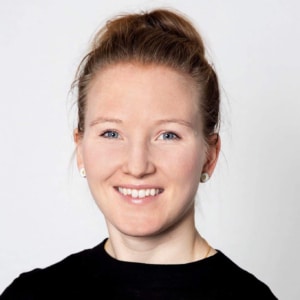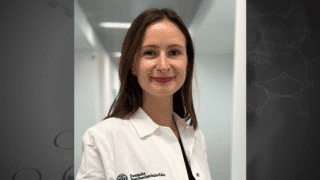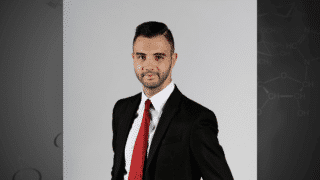 We are excited to introduce Sara A. Solheim, PhD, one of our new 2022 PCC Fellows. In this interview, Sara shares more about her career and her research.
We are excited to introduce Sara A. Solheim, PhD, one of our new 2022 PCC Fellows. In this interview, Sara shares more about her career and her research.
Background
Tell us about your educational background.
I am an exercise physiologist with a B.Sc. in Sports Science from Norwegian School of Sport Sciences, Norway, and UFR STAPS, Université de Montpellier 1, France. I received a M.Sc. in Human Physiology from the University of Copenhagen, Denmark, and an Industrial Ph.D. in Doping Analysis and Exercise Physiology. The Industrial Ph.D. was carried out in a collaboration involving Anti Doping Denmark, the University of Copenhagen, and the WADA-accredited Norwegian Doping Control Laboratory.
What educational/professional opportunities helped you reach this point in your career?
In 2014, I relocated to Copenhagen to complete my master’s studies within Human Physiology at the Department of Nutrition, Exercise and Sports at the University of Copenhagen. During my master’s degree, I was fortunate to join Prof. Nikolai B. Nordsborg’s performance and anti-doping research team. I specialized in autologous blood transfusion as part of Dr. Jacob Bejder’s Ph.D. project, with Dr. Jakob Mørkeberg (Senior Science Manager at Anti Doping Denmark) as an external supervisor. Dr. Bejder became a PCC Fellow in 2018. This initiated my research career within anti-doping. Concomitantly, I became a part-time Doping Control Officer at Anti Doping Denmark, which further strengthened my interest and experience in anti-doping work. Subsequently, I successfully obtained an Industrial Ph.D. grant (2017-2020) and was awarded a PCC grant to further develop the dried blood spot (DBS) methodology for detection of frequently occurring doping substances. Graduating in 2020, I continued my research and development work and the evaluation of the Athlete Biological Passport (ABP) as a Scientific Manager at Anti Doping Denmark, which is a very proactive anti-doping organization at the forefront of the anti-doping movement. These opportunities and work environments, including the great colleagues and national and international collaborators I have had the pleasure to work with, have provided me with valuable knowledge and experiences that have had a great impact on my career.
During my Ph.D., I had three excellent anti-doping experts as mentors: Dr. Jakob Mørkeberg, who is Senior Science Manager at Anti Doping Denmark and a member of WADA’s Blood Expert Working Group; Dr. Yvette Dehnes, who is Laboratory Director of the Norwegian Doping Control Laboratory and member of the WADA Laboratory Expert Advisory Group, and the Working Groups for EPO and the Endocrine Module; and Prof. Nikolai B. Nordsborg, who is now head of the Department of Nutrition, Exercise and Sports at the University of Copenhagen and a member of the PCC’s Performance Hematology Working Group. These mentors have served as a huge inspiration for my anti-doping research career and have – together with the support from and proactiveness of Anti Doping Denmark – provided me with opportunities to acquire the skills, knowledge, and experiences necessary to reach this point in my career. For that I am extremely grateful.
Why did you choose to go into anti-doping research?
I have always been active and interested in sports. Combined with my interest in sports sciences and exercise physiology, I wanted to become an anti-doping scientist to help further develop the anti-doping field to protect clean athletes and public health.
Research
What do you find most interesting or exciting about your research area?
Scientific research is the key to driving advances in anti-doping, and it excites me to help further develop the anti-doping work, including contributing to the implementation of DBS as a complementary matrix in doping control. One of the things that I find the most rewarding about this field is that the results can be applied by the anti-doping community immediately when published. I really like working with applied research, and I also like the way this field involves interdisciplinary research and collaborative work.
What are your plans for your PCC-supported research, and what impact will your research have on furthering the field of anti-doping?
In terms of specific research goals for my Fellowship, the aim is to further develop anti-doping blood testing, herein DBS. The Postdoctoral Fellowship will be conducted at the WADA-accredited Norwegian Doping Control Laboratory and the Norwegian School of Sport Sciences in Oslo. By further developing and evaluating innovative, more time- and cost-effective, and more athlete-friendly approaches for testing and deterring the use of prohibited substances and methods, my research will support the global anti-doping community in their daily work and thereby contribute to protecting the clean athlete and public health.
Goals and PCC Benefits
How has PCC funding helped enable your research success?
The PCC funding has not only helped by covering the costs of running experiments (helping us to complete these studies), but it has also helped me form strong and fruitful research collaborations. Moreover, the possibility to apply for PCC micro grants has also enabled research add-ons with fast turnaround times.
What do you hope to accomplish through your fellowship experience?
I am highly motivated to continue my anti-doping research through the Fellowship Program, and I am honored to be selected as a PCC Fellow. I am looking forward to new experiences, gaining new knowledge, and expanding my network, and I hope that our research projects will help push the boundary of anti-doping knowledge.
What are your long-term research or career goals?
After finishing this Fellowship, I hope to continue my career within anti-doping at an anti-doping organization, WADA-accredited laboratory, and/or a career within anti-doping research at an academic institution. My goal is to contribute to continuous evolution and improvement of the anti-doping system in terms of detection and deterrence, as well as more athlete-friendly approaches.



